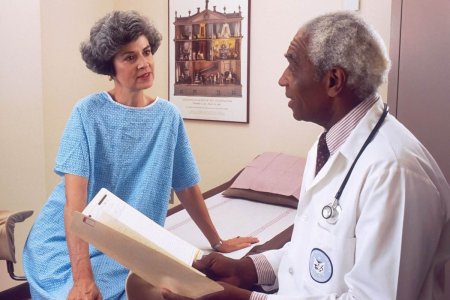GPs are finally receiving additional support to treat those living with complex forms of dementia
- Replies 4
As our population ages, we see more cases of age-related diseases, including dementia.
We understand the immense strain this horrible condition brings to the lives of those faced with it, as well as their families and carers. We sympathise greatly with everyone affected.
A cure for dementia is still out of reach, but the hope is as medical science advances, we will finally see a solution to this heartbreaking problem within our lifetimes.
In the meantime, the best thing that can be done is to provide adequate support for dementia patients and the healthcare system that surrounds them.
A new service has been launched to support general practitioners (GPs) in helping those with complex forms of dementia.
The new service is known as the GP Advice Service, and it was created by Dementia Support Australia.
With this groundbreaking new feature, GPs treating patients with Behaviours and Psychological Symptoms of Dementia (BPSD) can tap the expertise of specialists like geriatricians to provide better quality case management.
Examples of BPSD include symptoms such as psychosis, aggression, anxiety, and depression, which can worsen over time without the proper medical care and attention.
When managing the clinical needs of their patients with BPSD, GPs can now get the direct email assistance of specialists. They will be able to guide practitioners on the ideal treatments depending on the age, history, and other relevant details of the patient.
‘We recognise that in the day-to-day work of running their practice, it may not be possible for GPs to make a call or discuss a patient during normal business hours,’ DSA Head of Dementia Professional Services Marie Alford said.
‘An email response offering clinical advice from a medical specialist is a great solution.’
This service is essential because, according to the recent Royal Commission into Aged Care Quality and Safety, there is an over-reliance on psychotropic medications in treating people with BPSD, especially elderly residents in aged care facilities.
Unfortunately, these medications can have some nasty effects, such as hypertension, diabetes, and increased risk for respiratory complications, which can limit the effectiveness of one's treatment in the long run.
DSA Head of Clinical Services, Steve Macfarlane, expressed his support for the GP Advice Service, advocating for its use in motivating doctors to use better and more modern treatments.
‘Nonpharmacological strategies should be an important part in the management of dementia complicated by BPSD and, in fact, be the mainstay of treatment in most patients,’ he explained.
'We want to do all we can to support GPs to consider alternatives to these medications.’

As of 2023, over 400,000 Australians are living with dementia, according to Dementia Australia. This number is expected to go over 800,000 by 2058, pending any development on a cure or treatment for the disease.
The term ‘dementia’ actually refers to a range of diseases affecting cognitive function, such as Alzheimer’s Disease and Lewy Body Dementia.
Symptoms vary among individuals with dementia, but common markers include frequent bouts of confusion, memory problems, difficulty accomplishing tasks, and changes in personality.

Dementia is also among the leading causes of death in the country. In women, the disease is the top cause of fatalities, according to government data.

There are resources and services available to those who wish to seek dementia-related help.
Dementia Support Australia can be reached by phone at 1800 699 799. For more information on their GP Advice Service, click here.
Meanwhile, the National Dementia Helpline of Dementia Australia can be reached at 1800 100 500 for additional information on how to deal with the disease.
On a related note, here are some articles you might want to read:
We understand the immense strain this horrible condition brings to the lives of those faced with it, as well as their families and carers. We sympathise greatly with everyone affected.
A cure for dementia is still out of reach, but the hope is as medical science advances, we will finally see a solution to this heartbreaking problem within our lifetimes.
In the meantime, the best thing that can be done is to provide adequate support for dementia patients and the healthcare system that surrounds them.
A new service has been launched to support general practitioners (GPs) in helping those with complex forms of dementia.
The new service is known as the GP Advice Service, and it was created by Dementia Support Australia.
With this groundbreaking new feature, GPs treating patients with Behaviours and Psychological Symptoms of Dementia (BPSD) can tap the expertise of specialists like geriatricians to provide better quality case management.
Examples of BPSD include symptoms such as psychosis, aggression, anxiety, and depression, which can worsen over time without the proper medical care and attention.
When managing the clinical needs of their patients with BPSD, GPs can now get the direct email assistance of specialists. They will be able to guide practitioners on the ideal treatments depending on the age, history, and other relevant details of the patient.
‘We recognise that in the day-to-day work of running their practice, it may not be possible for GPs to make a call or discuss a patient during normal business hours,’ DSA Head of Dementia Professional Services Marie Alford said.
‘An email response offering clinical advice from a medical specialist is a great solution.’
This service is essential because, according to the recent Royal Commission into Aged Care Quality and Safety, there is an over-reliance on psychotropic medications in treating people with BPSD, especially elderly residents in aged care facilities.
Unfortunately, these medications can have some nasty effects, such as hypertension, diabetes, and increased risk for respiratory complications, which can limit the effectiveness of one's treatment in the long run.
DSA Head of Clinical Services, Steve Macfarlane, expressed his support for the GP Advice Service, advocating for its use in motivating doctors to use better and more modern treatments.
‘Nonpharmacological strategies should be an important part in the management of dementia complicated by BPSD and, in fact, be the mainstay of treatment in most patients,’ he explained.
'We want to do all we can to support GPs to consider alternatives to these medications.’

A recent inquiry found that in some cases, psychotropic medications were used excessively on dementia patients in aged care. Image Credit: Unsplash
As of 2023, over 400,000 Australians are living with dementia, according to Dementia Australia. This number is expected to go over 800,000 by 2058, pending any development on a cure or treatment for the disease.
The term ‘dementia’ actually refers to a range of diseases affecting cognitive function, such as Alzheimer’s Disease and Lewy Body Dementia.
Symptoms vary among individuals with dementia, but common markers include frequent bouts of confusion, memory problems, difficulty accomplishing tasks, and changes in personality.
Tip
TIP: Dementia Australia strongly discourages people from labelling others to have dementia based on characteristics like forgetfulness or confusion. These are symptoms the disease shares with other health problems like brain tumours or depression, so it would be best to leave the diagnosis to health professionals.
Dementia is also among the leading causes of death in the country. In women, the disease is the top cause of fatalities, according to government data.
Key Takeaways
- Dementia Support Australia has launched the GP Advice Service to help GPs manage the clinical needs of older people with dementia complicated by behavioural and psychological symptoms.
- The service works by linking GPs via email to specialists when consulting complex cases of dementia.
- This development is seen to address the overuse of psychotropic medication on patients with dementia in aged care.
Dementia Support Australia can be reached by phone at 1800 699 799. For more information on their GP Advice Service, click here.
Meanwhile, the National Dementia Helpline of Dementia Australia can be reached at 1800 100 500 for additional information on how to deal with the disease.
On a related note, here are some articles you might want to read:
- Gogglebox Star’s emotional confession about her grandmother's struggle with dementia - 'Sometimes I wish she'd just go'
- Want to reduce your risk of dementia? A study found that this surprising device may help
- 'I love you a bushel and a peck': Great-grandma with dementia croons over baby in touching video








